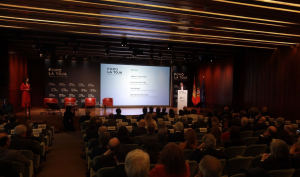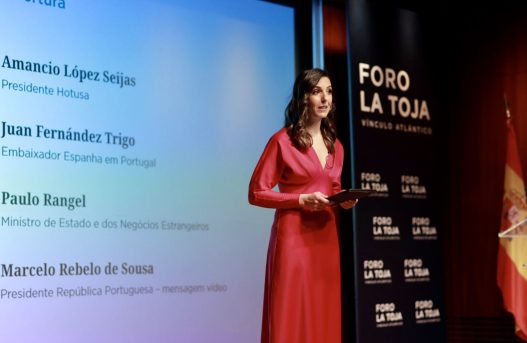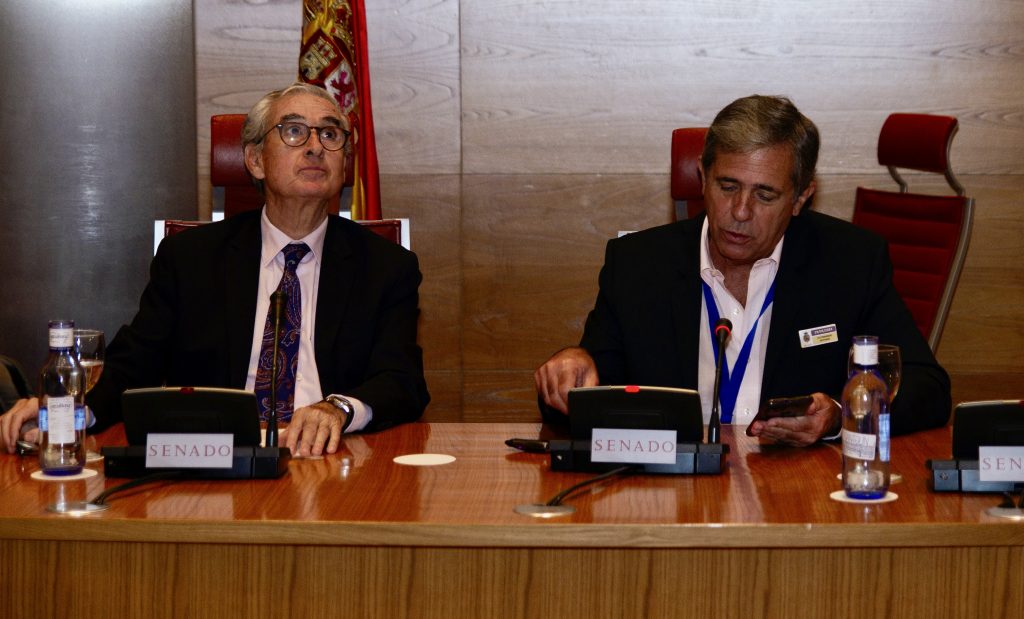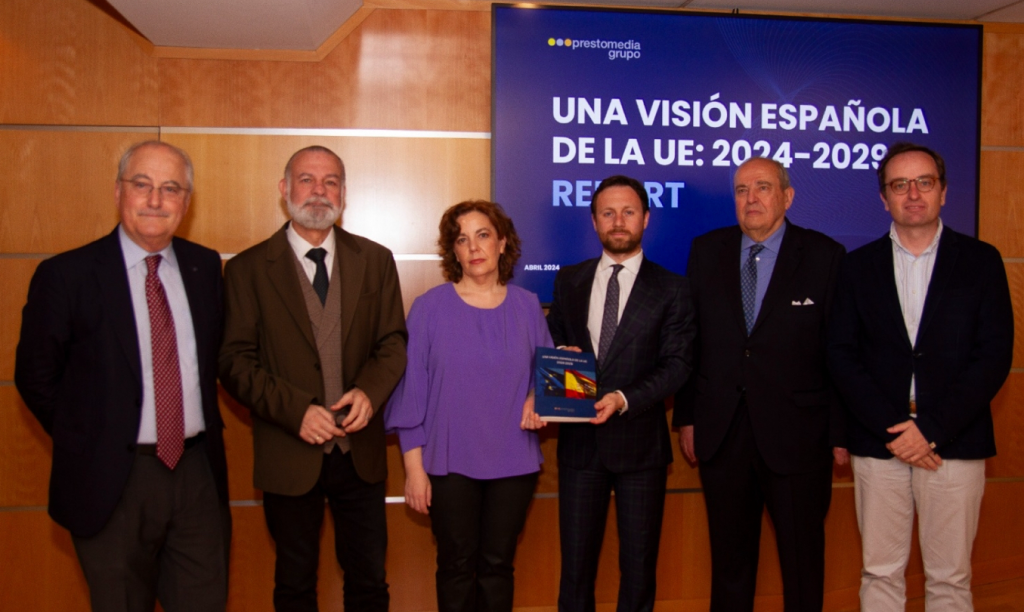
LA TOJA LISBON FORUM: THE REVOLUTION OF THE EUROPEAN AND LATIN AMERICAN LIBERAL DIALOGUE
By Alberto Barciela, vice-president of EditoRed
“As soon as the day dawns, I see you (Lisbon) resting on the Tagus, like a city that sails”. José Cardoso Pires (1925-1998) wrote it in “Lisbon. On board diary. Voices, glances, emotions”, creating a beautiful metaphor that extends to Porto, to all of Portugal and to Spain itself.
The La Toja Forum arrived for the second time in the Portuguese capital, commanded by Amancio López Seijas and his daughters Marina and Clara, to commemorate “Five decades of democracy” in the Iberian Peninsula. Fifty years of coexistence in freedom, sailing through rough seas of modernization, civic achievements and uncertain courses, which emerged from exemplary citizens’ movements: the beautiful Carnation Revolution and the exemplary Spanish Transition.
Many ports have been visited, numerous bridges have been crossed and storms have been faced, but the favorable winds have been seized under the banner of European convenience, without forgetting the former colonies. Obstacles have been forded, sometimes narrow, through turbulent waters, but a certain course has always been maintained towards sure progress in a slow but sure way, in any case Iberian, European, Ibero-American, democratic, liberal.
The emotional ties tied by unique historical precedents, guided by the steps of the Kings of Spain, Juan Carlos I and Felipe VI, Suarez, Mario Soares, Felipe Gonzalez, Manuel Fraga, Mariano Rajoy and other politicians, renowned mayors, businessmen, journalists, intellectuals and citizens knew in fifty years transcend physical boundaries and historical separations to find unity in the midst of mists, all between monarchy and republic, between opposing ideologies, finding understanding, coexistence and common roots, obtaining the European Funds that have turned the Peninsula into a unique example of modernity, outstanding in its dialogues, ambitious in its projects and fruitful in its loyal discussions.
The President of the Republic, Marcelo Rebelo de Sousa; the Minister of State and Foreign Affairs, Paulo Rangel; the presidents of the Chambers of Lisbon and Porto, Carlos Moedas and Rui Moreira, together with Jaume Collboni, Mayor of Barcelona, what great heads spoke about all this at the Forum, held at the headquarters of the Fundaçao Calouste Gulbenkian, and Antón Costa, President of the Economic and Social Council of Spain. And Antón Costa, president of the Economic and Social Council of Spain, and masterfully moderated by Cristina Callach, journalist and EU expert. And, among others, the indispensable former presidents Felipe González and Mariano Rajoy, with the prime ministers, Francisco Pinto Balsemao, and Antonio Costa. The Spanish Minister of Defense, Margarita Robles, and Augusto Santos Silva, President of the Portuguese Assembly, closed the event.
Maria Ignacia Rezola, Executive Commissioner of the commemoration of the 50th anniversary of the Carnation Revolution, the most human, the most beautiful, the most musical, and the organizers, with Carmen Martinez Castro and Carlos Lopez Blanco, could not have wished for a more beautiful act to celebrate democracy.
Freedom and carnations. The indelible light of April Lisboeta illuminates some new discoveries. A better world is possible.
—-
This text is for free use. If you use it, please cite the author and EditoRed.



